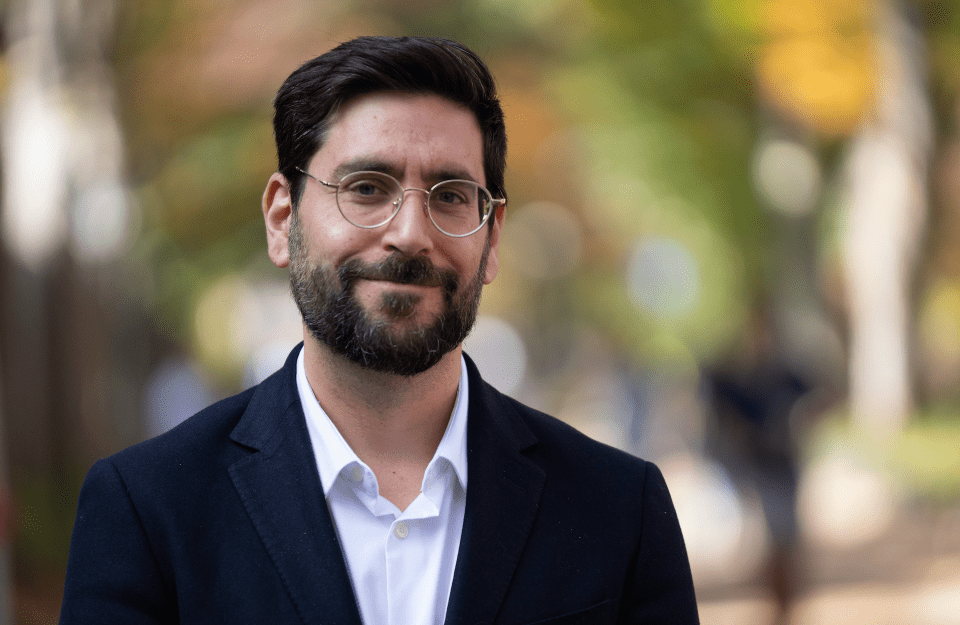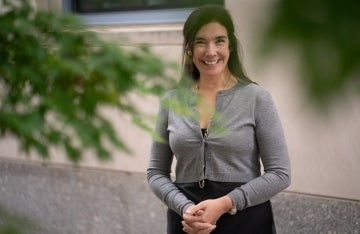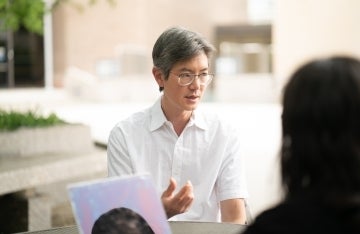Yphtach Lelkes Awarded 2025 Andrew Carnegie Fellowship
Lelkes will study how political hostility is shaped in an overloaded information environment.

The Carnegie Corporation of New York announced today that Annenberg School for Communication Associate Professor Yphtach Lelkes has been awarded a 2025 Andrew Carnegie Fellowship, one of the most prestigious honors in the social sciences and humanities.
Lelkes is one of the twenty-six fellows who will receive stipends of $200,000 each for research that seeks to understand how and why our society has become so polarized and how we can strengthen the forces of cohesion to fortify our democracy. The 2025 class marks the second year of the Andrew Carnegie Fellows Program’s focus on building a body of research focused on political polarization.
Lelkes studies the structure, dynamics, and causes of political attitudes, with a particular emphasis on polarization and American politics. His project, “Rethinking Partisan Animosity as Strategic Identity Signaling,” reframes partisan animosity not as genuine hatred but as a strategic signal people use to navigate an increasingly chaotic information environment.
“I'm deeply honored to receive the Carnegie Fellowship. It’s a meaningful recognition of my work on political polarization — and a signal that society is taking this challenge seriously,” he says. “I'm especially proud to follow in the footsteps of past Annenberg fellows like Duncan Watts and Sarah Jackson, whose contributions I deeply respect. I'm grateful for the time and support this fellowship provides, and excited to use it to better understand how we can bridge divides in an increasingly fractured political landscape.”
Lelkes is the co-director of the Polarization Research Lab, a collaboration between the Annenberg School, Dartmouth College, and Stanford University, which looks at affective polarization, social trust, and political violence. He is also the co-director of the Center for Information Networks and Democracy at Annenberg, which researches the benefits and risks that information networks have for democracy
“In a world overloaded with data and impersonal interactions, individuals use visible expressions of out-party hostility to demonstrate trustworthiness, group loyalty, and credibility,” he says. “Drawing from political science, communication, psychology, and economics, the project theorizes that negative partisan signaling functions as a shortcut for identity and relevance. Lelkes added that his project examines how information overload and identity uncertainty drive these behaviors with new experiments and observational data. “The goal is to shift how we understand polarization—moving beyond simple narratives of tribalism to show how political hostility is shaped by broader structural forces in the information landscape.”
Also included in the 2025 class of fellows is Annenberg alumnus Jennifer Henrichsen (Ph.D. '21), an assistant professor at the Edward R. Murrow College of Communication at Washington State University and an Affiliated Fellow at the Media, Inequality, and Change Center at Annenberg. She studies journalists, journalism, and news organizations.
Founded in 2015, the Andrew Carnegie Fellow Program provides the most generous stipend of its kind for research in the humanities and social sciences. To date, Carnegie has named almost 300 fellows, representing a philanthropic investment of more than $59 million. The award is for a period of up to two years and the anticipated result is generally a book or major study. Congressional testimony by past fellows has addressed topics such as social media and privacy protections, transnational crime, governmental responses to pandemics, and college affordability. Fellows have received honors including the Nobel Prize, Pulitzer Prize, and National Book Award.



